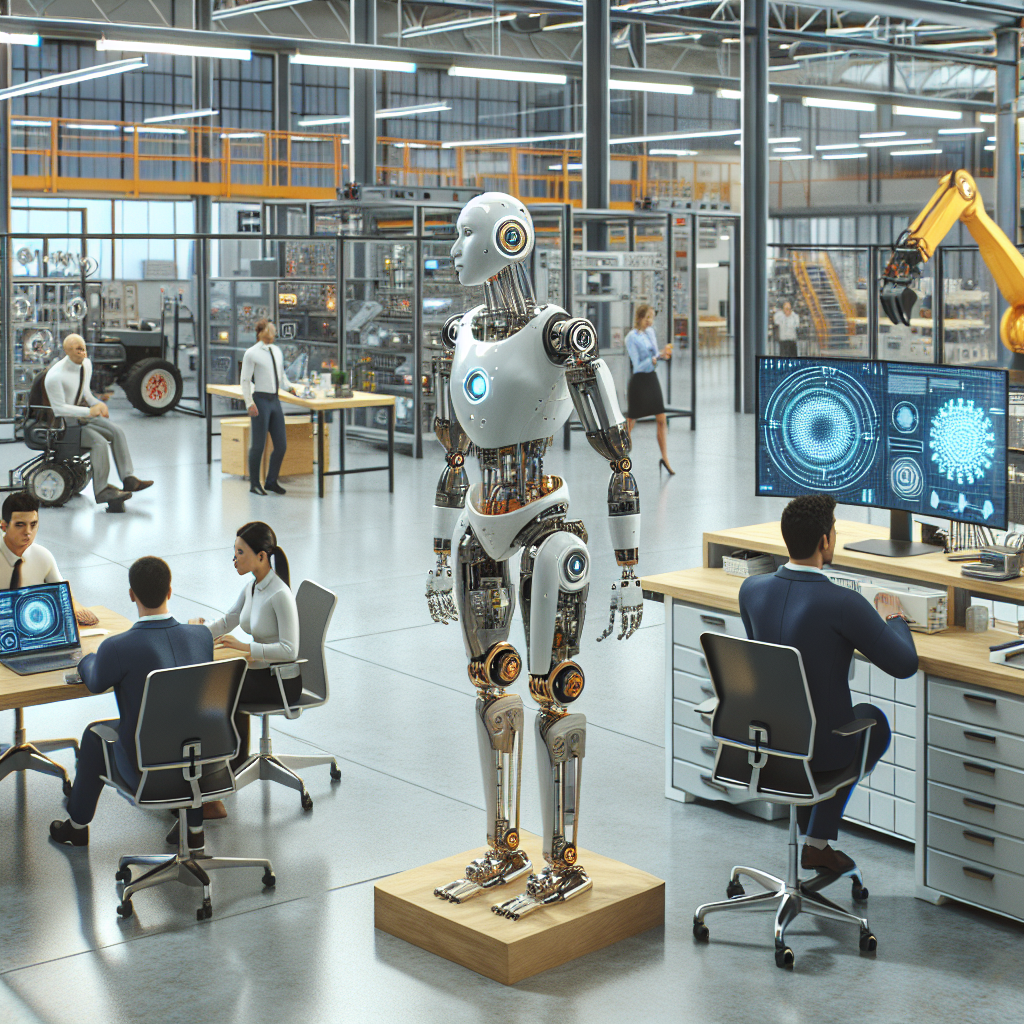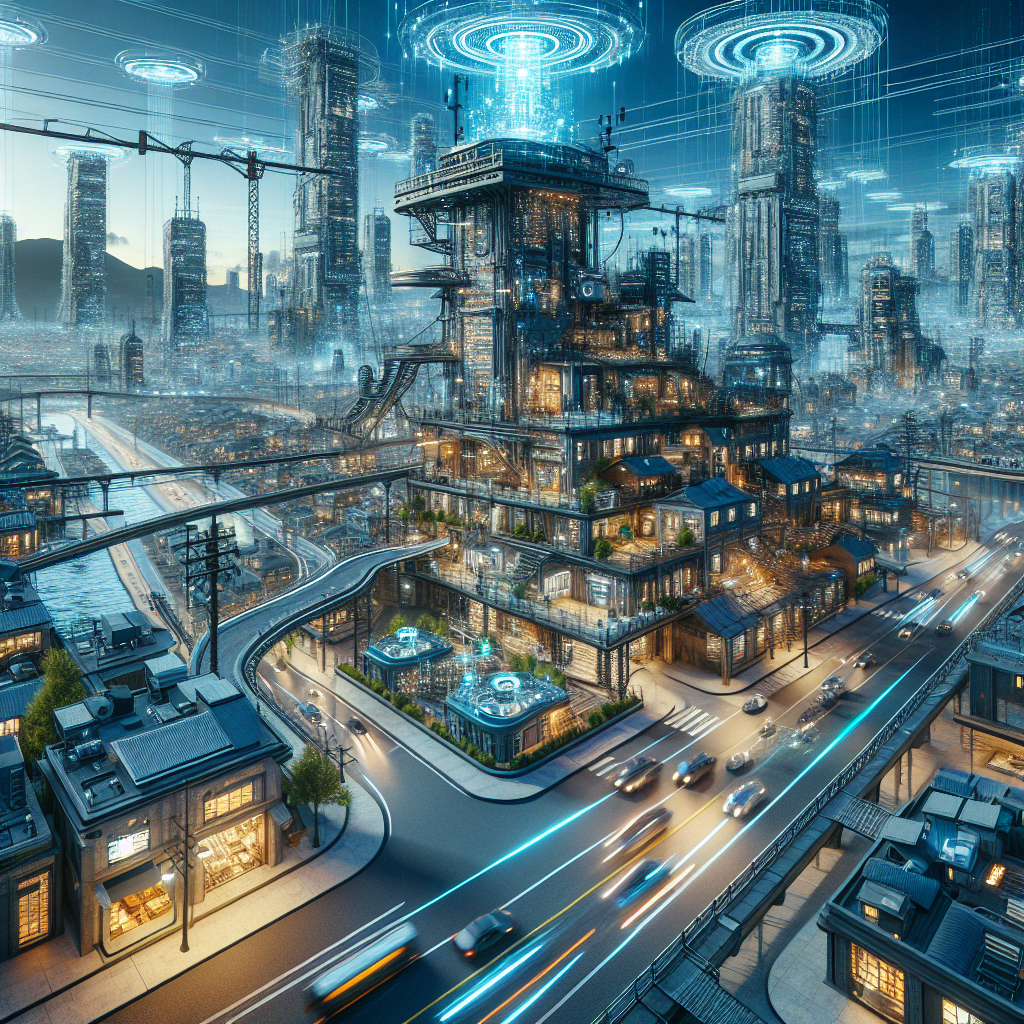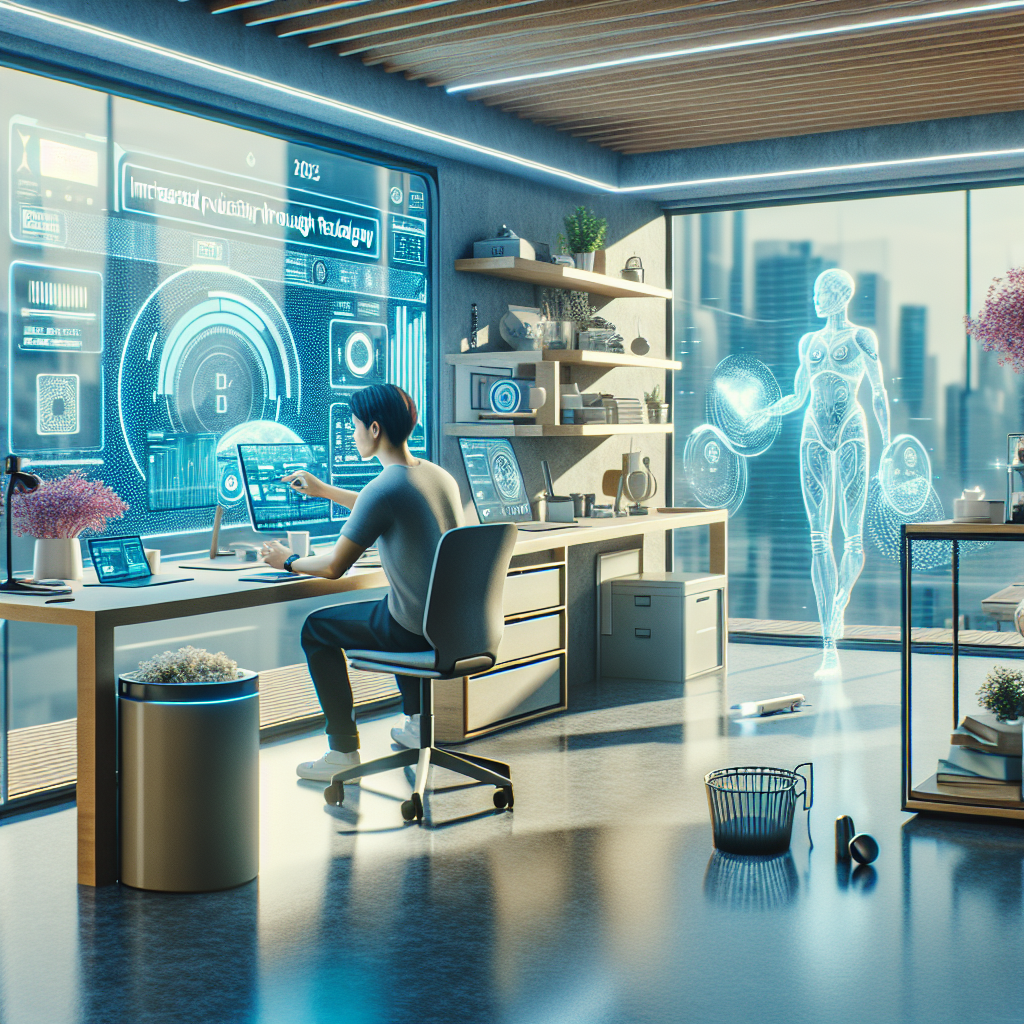How AI Will Reshape Jobs and Productivity in 2025
The landscape of work is shifting dramatically as artificial intelligence (AI) continues to evolve. By 2025, AI is poised to become a central force in shaping the Future Work environment, influencing the nature of jobs and overall productivity across industries. Companies and employees alike face both promising opportunities and unique challenges as automation and intelligent systems take on tasks that redefine traditional roles. Understanding how AI will reshape the workforce this soon is critical for preparing and thriving in the emerging workplace.
AI’s integration into everyday work processes promises significant efficiency gains, but also demands new skills and adaptability. This transformation is not about replacing humans outright but about collaboration between machines and people. In this article, we explore the practical ways AI will redefine jobs, enhance productivity, and influence career paths by 2025, offering actionable insights on what to expect and how to get ready.
AI’s Role in Transforming Job Functions
AI is set to revolutionize how tasks within jobs are performed rather than simply eliminating positions. This nuanced change requires an examination of how AI complements human labor and automates routine work.
Automation of Repetitive Tasks
Many routine, repetitive tasks across industries are prime candidates for AI automation. For example:
– Data entry and processing in finance and administration
– Scheduling and customer service inquiries via chatbots
– Basic content generation for marketing teams
Automating these tasks reduces human error, speeds up workflows, and frees employees to focus on more complex, creative responsibilities that add greater value.
Augmentation of Decision-Making
AI tools will increasingly serve as decision-support systems. They analyze large datasets and provide actionable insights, allowing professionals to make faster, more informed choices. In sectors like healthcare, finance, and logistics, AI can highlight trends and flag risks that would otherwise go unnoticed. For instance, predictive analytics in supply chain management can optimize inventory levels, directly boosting productivity.
Job Creation in New Roles
While AI automates certain functions, it simultaneously creates demand for new roles such as:
– AI trainers and explainability experts who ensure algorithms remain fair and unbiased
– Data analysts interpreting AI-generated insights for strategic planning
– Cybersecurity specialists protecting AI-integrated systems
This shift encourages workers to develop hybrid skillsets, merging domain expertise with digital literacy.
Future Work Requires Strong Human-AI Collaboration
Instead of viewing AI as a replacement, the workforce must embrace collaboration with smart systems to unlock full productivity gains.
Enhancing Creativity and Innovation
AI provides tools that expand human creativity through rapid prototyping, idea generation, and pattern recognition. For example, designers can leverage AI-powered platforms to experiment with countless variations, accelerating innovation cycles. This collaboration enables professionals to focus more on creative strategy than manual execution.
Improving Worker Efficiency
AI-powered personal assistants and automation platforms simplify task management and communication. They help reduce cognitive load by prioritizing emails, scheduling meetings, and monitoring project progress in real time. This efficiency lets employees spend more quality time on high-impact activities that require empathy, judgment, and intuition.
Reskilling and Upskilling Workers
To thrive alongside AI, employees must continuously acquire new skills. Learning focuses include:
– Understanding AI capabilities and limitations
– Developing critical thinking and complex problem-solving skills
– Cultivating emotional intelligence for roles relying on interpersonal interaction
Organizations that invest in skill development programs create resilient workforces prepared for evolving job demands in the Future Work ecosystem.
Industry-Specific Impacts of AI by 2025
AI’s influence will vary across sectors, reshaping jobs and productivity based on unique operational characteristics.
Manufacturing and Supply Chain
AI streamlines operations through predictive maintenance, demand forecasting, and robotics. Smart factories utilize AI to monitor machinery health, reducing downtime and enhancing output quality. Supply chains become more agile with AI-powered logistics that optimize routes and inventory management, saving costs and reducing delays.
Healthcare
In healthcare, AI supports diagnostics, patient monitoring, and administrative tasks. AI algorithms assist in identifying diseases from medical images and predicting patient outcomes, improving treatment accuracy and speed. Automation in administrative workflows reduces paperwork, giving clinicians more time with patients.
Financial Services
AI detects fraud, automates compliance checks, and personalizes customer experiences in banking. Robo-advisors manage investment portfolios with data-driven strategies, democratizing financial planning. These applications elevate productivity and reduce risks, demanding that staff adapt to supervisory and strategic roles.
Retail and Customer Service
AI enhances customer engagement with chatbots, personalized recommendations, and inventory automation. Retailers achieve higher sales conversions and operational efficiency by leveraging AI-driven analytics. Employees focus more on relationship-building and resolving complex issues that AI cannot yet handle.
Preparing for the Future Work Environment
Businesses and professionals must proactively plan for the AI-driven changes ahead.
Strategies for Business Leaders
– Invest in AI technologies that align with core business goals
– Commit to continuous workforce development and reskilling programs
– Foster a culture of innovation that embraces change and experimentation
– Collaborate with AI vendors to customize solutions that benefit employees and customers
Advice for Employees
– Build digital literacy and learn to work alongside AI tools
– Focus on developing soft skills like empathy, creativity, and communication
– Engage in lifelong learning through online courses, workshops, and certifications
– Stay informed about emerging AI trends in your industry and role
The Role of Policy and Education
Governments and educational institutions play a critical role in preparing society for the Future Work scenarios shaped by AI. By promoting STEM education, coding skills, and ethical AI practices, policymakers can ensure a more inclusive transition. Public-private partnerships fostering reskilling initiatives also support displaced workers and newcomers.
Looking Ahead: Embracing AI with Confidence
The integration of AI into the workplace by 2025 signals a profound shift in how productivity and jobs evolve. While AI automates routine tasks and provides powerful decision tools, human creativity, empathy, and critical thinking remain irreplaceable. The Future Work paradigm hinges on coexistence and cooperation between humans and machines, opening avenues for greater job satisfaction and business success.
By understanding the transformative potential of AI now, organizations and professionals can take deliberate steps to harness its benefits. This includes investing in relevant technologies, embracing continuous learning, and fostering a culture that values innovation and adaptability.
To take proactive control over your organization’s AI integration and future-proof your workforce, consider reaching out to industry experts who specialize in automation and intelligent systems. Visit https://automatizacionesaiscend.com to discover tailored solutions designed to elevate productivity and empower employees in the evolving Future Work landscape. The future is collaborative—and prepared teams will thrive.



